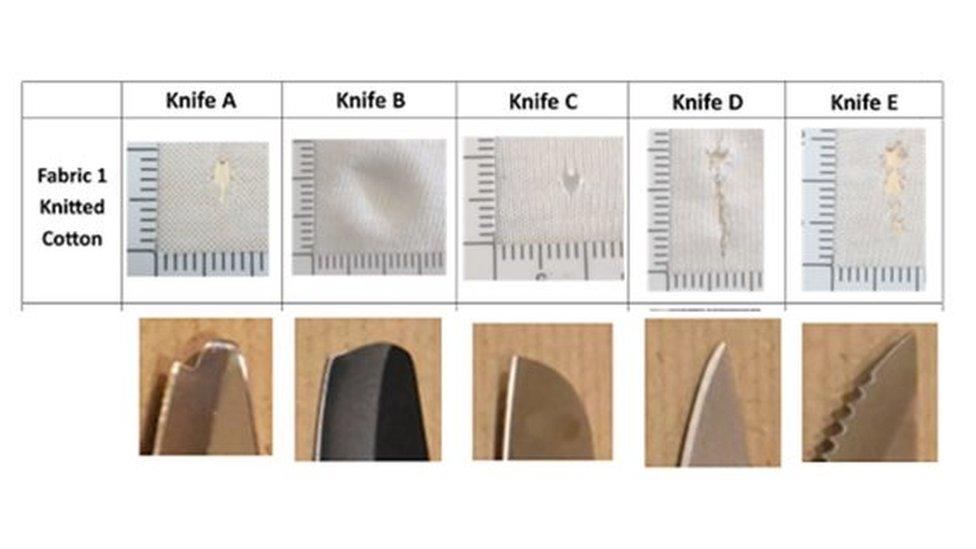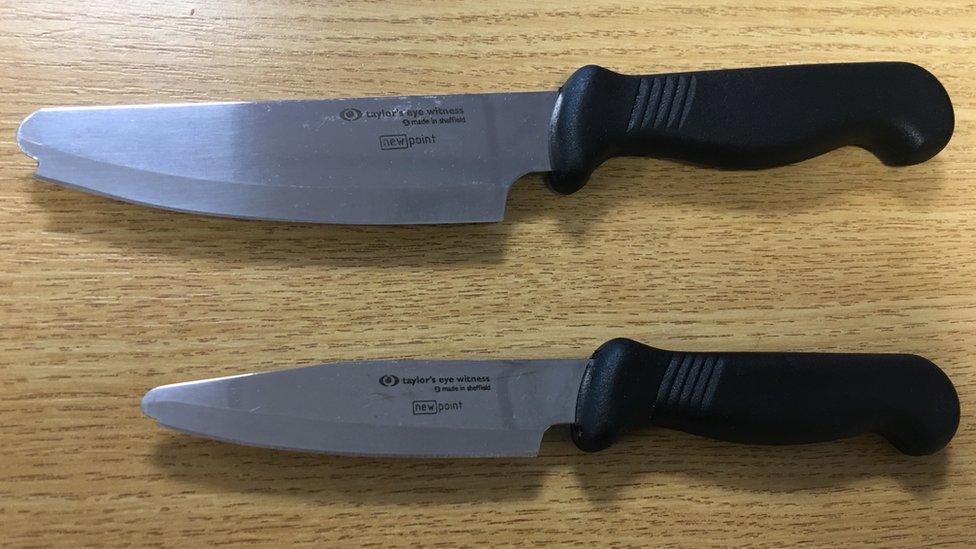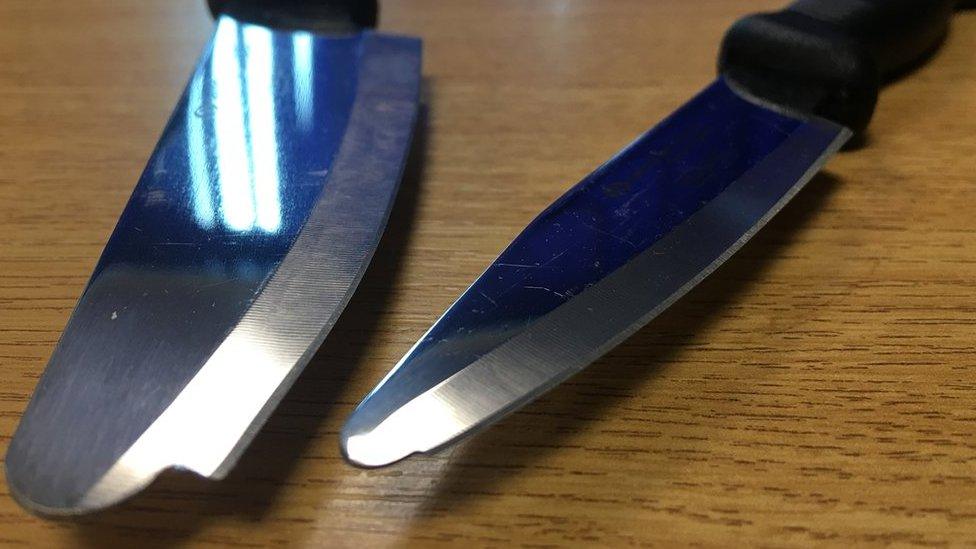Round-tipped kitchen blades 'could help reduce knife crime'
- Published

Leisa Nichols-Drew said knives are not only used as weapons on the streets
Round-tipped kitchen knives could help reduce knife crime and serious injuries, a university study has found.
De Montfort University Leicester (DMU) used kitchen knives with different blade tips to carry out stab tests.
Researchers found four knives with sharp tips pierced through clothing but the round-tipped knife did not.
Forensic science lecturer Leisa Nichols-Drew said she hoped her findings would be taken on board by manufacturers and retailers.

The university carried out stab tests and found Knife B, with a rounded tip, did not penetrate clothing
The study involved carrying out 300 tests using a single downward stabbing motion on different materials.
Ms Nichols-Drew, a former practitioner for the Home Office's Forensic Science Service, found the rounded blade did not pierce any of the fabrics.
Ms Nichols-Drew previously worked on investigations that led to the conviction of Ian Huntley and Suffolk serial killer Steven Wright.
"There is an opportunity for crime reduction by swapping pointed-tip knives for rounded blades in the kitchen," she said.
"Stats show where knife crime is recorded, it is often a kitchen knife that is the most-used weapon.
"A knife that can be used safely and effectively at home, without the possibility of accidental injury, minimises the risk of it being used as a potential weapon."

Nottinghamshire Police gave rounded knives to domestic abuse victims
Ms Nichols-Drew said some manufacturers were already producing rounded blades but more companies were looking into it following the research.
Leicestershire's deputy police and crime commissioner, Kirk Master, said any initiatives that reduced knife crime were to be welcomed.
A Home Office spokesperson said: "It is important to strike the right balance between allowing access to [knives], for instance as tools, with the need to protect the public from dangerous weapons."
'Impulse decision'
Last year, Nottinghamshire Police were criticised for running a pilot scheme in which domestic abuse victims were given blunt knives to replace sharp implements in their kitchens.
But the trial won backing from retired judge Nic Madge.
"Most violent offences are committed on the spur-of-the-moment," he said.
"People pick up the closest thing they can find, and in the kitchen, the closest thing they find is often a pointed kitchen knife."

Follow BBC East Midlands on Facebook, external, Twitter, external, or Instagram, external. Send your story ideas to eastmidsnews@bbc.co.uk.
- Published17 July 2020

- Published13 June 2019
